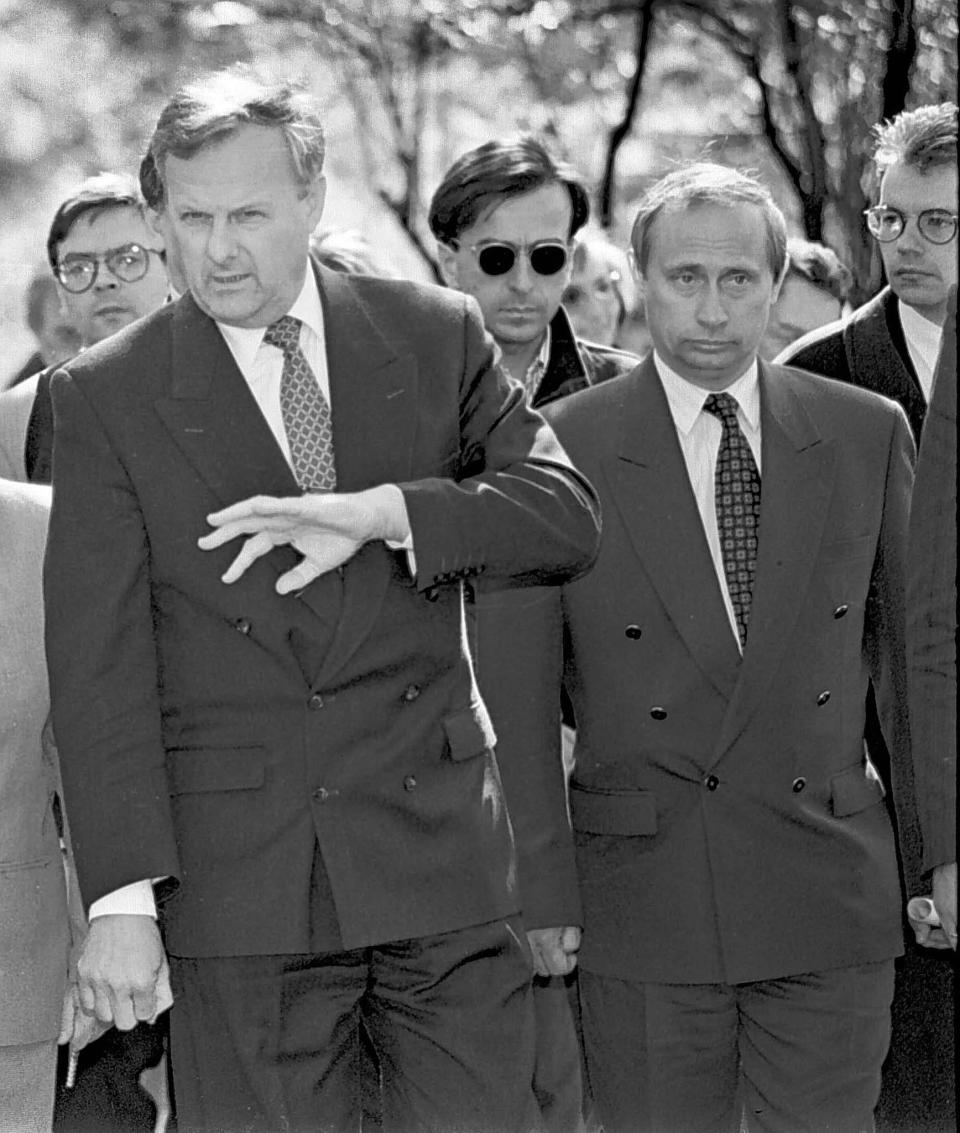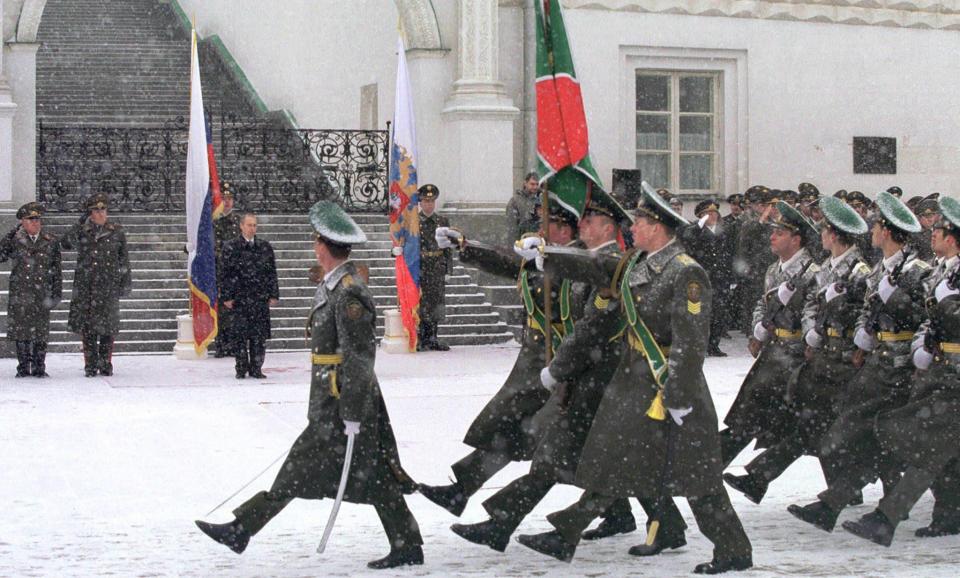A life on the world stage, but scant biographical details: What we know of the life of Vladimir Putin
- Oops!Something went wrong.Please try again later.
MOSCOW – For as long as he's been in the public eye, Russian President Vladimir Putin has been a closed book, with relatively few confirmed facts about his real thinking on foreign affairs and what motivates his policy actions. His personal life, too, has been shrouded in mystery and controversy.
And now the Putin enigma is testing the world again because of fears he may launch an invasion of Ukraine, Russia's western neighbor, and what this could mean for Ukraine's fragile democracy and the broader U.S. and European security order in place on the continent for decades.
With the crisis deepening, Russian Foreign Minister Sergei Lavrov and U.S. Secretary of State Antony Blinken are expected to meet for talks in Europe next week. But President Joe Biden, while leaving the door to diplomacy open, left no doubt Friday that he's "convinced" Putin has already made up his mind to invade.
Here are some basics of what is known about Putin. Subscribers can read a more in-depth story about Russia's longest-serving leader here.

Putin's early days
Putin was born 1952 in what used to be called Leningrad, USSR, and is now known as St. Petersburg, Russia. He served for 15 years in the KGB, the Soviet-era agency that was the counterpart to the CIA. The spy agency was a notorious symbol of the Cold War and became the focus of a slew of U.S. spy novels and movies.
During that time, in 1983, he married a flight attendant named Lyudmila. They had two daughters, Mariya and Katerina. Putin and Lyudmila divorced in 2013. He may have another child, possibly with former Russian gymnastics champion Alina Kabaeva.
By 1994, Putin had become deputy mayor in the city of his birth, and by 1998, the director of the FSB, the KBG's domestic successor. A year later, Putin was prime minister, then president – one of two positions he's held ever since.
Trouble at home
Over the last two decades, Putin has consolidated his grip on power by transforming Russia's courts, media and other governance institutions to serve the whims of one person: himself. He has spent lavishly on the the military, banned or jailed opposition politicians and journalists and cultivated support from right-wing, nationalist groups. He changed Russia's constitution so he can stay in power until 2036, perhaps even longer.
Putin has also presided over a growing Russian middle class, modernized some areas of Russia's economy such as in banking and technology and weathered successive financial crises because of Russia's enormous strategic oil and gas reserves. He has sought to crack down on dissent by banning restricting free speech on the Internet.

On the world stage
Because of his political longevity, Putin has seen five U.S. presidents come and four go. During this time there has been cooperation on trade, nuclear and ballistic missile treaties, fighting terrorism and more.
There has also been sharp divergence – on human rights, on the wars in Afghanistan, Iraq and Syria, on the rule of law, on Moscow's apparent or at least tacit support for cyber-hackers, and on what countries such as Ukraine and Georgia, formed in the wake of the Soviet Union's break-up in 1991, should be allowed to do in terms of carving out their own cultural and ideological destinies.
What is NATO?: Military alliance in spotlight as Russia tries to forbid Ukraine membership
Ukraine has aspirations to join the 30-nation NATO military alliance that was formed in the wake of World War II to help keep the peace in Europe. It seeks to lean west toward democracies in the European Union.
The NATO bloc's gradual encroachment east toward countries that border Russia is seen by Putin as a threat to Moscow's security and sphere of influence. It is this, partly, analysts believe, that underpinned Russia's annexation of Crimea in 2014 and Moscow's support for separatist rebels in Ukraine's Donbass region, where fighting has raged for eights years and is now the subject of an intense international spotlight because of what it could say about Putin's invasion plans.
What the people want
Ordinary Russians, meanwhile, are more afraid today than they have been for 30 years that Putin could drag their country into a full-scale war with Ukraine, according to Lev Gudkov, the director of the Levada Center, an independent research organization.
Some 62% of Russians surveyed by the Levada Center said they were worried Russia could be facing "World War III," Gudkov told USA TODAY.
In Ukraine, a survey released Friday by research firm Rating Sociological Group found that 25% of respondents saw little-to-no threat of a Russian invasion; 19% of those surveyed said there was a "high" chance Moscow could invade.
This article originally appeared on USA TODAY: Vladimir Putin: from his early days to the world stage, his biography

